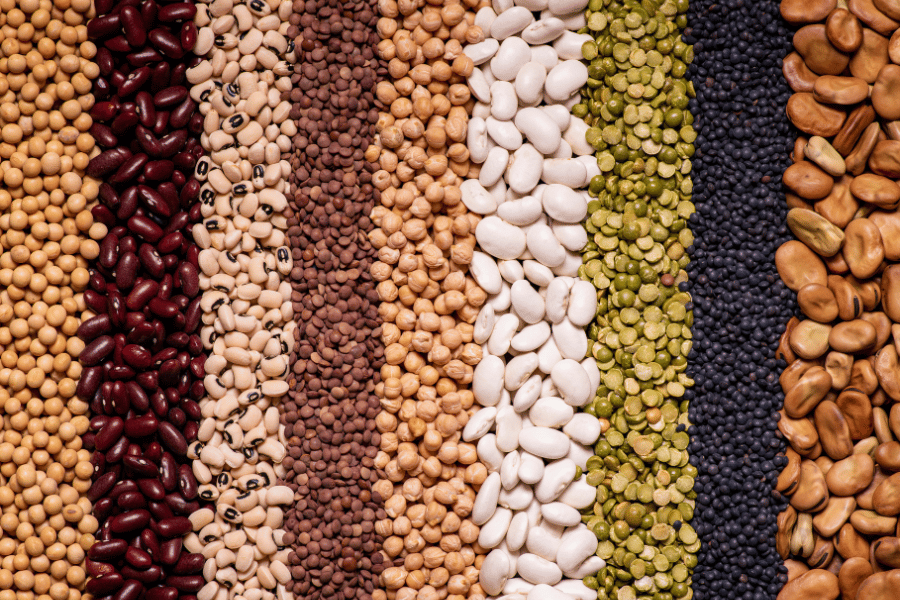Navigating the journey of weight management post-menopause can often feel like an uphill battle. With the end of the reproductive years, women commonly face significant changes that can impact their weight, metabolism, and overall health. The introduction of a post menopausal weight loss plan is not just about shedding extra pounds but also about understanding and adapting to these bodily changes.
In this article, we will delve into the complexities of weight loss post menopause, exploring why traditional weight loss methods may not be as effective during this stage of life. We aim to equip you with tailored strategies and a comprehensive understanding of how hormonal shifts affect weight and metabolism. This guide is designed to empower post-menopausal women to take control of their health and navigate their weight loss journey with confidence and knowledge. Join us as we explore practical and effective approaches to losing weight and maintaining health post-menopause.

The Impact of Menopause on Weight and Metabolism
The transition into menopause significantly affects a woman’s body, particularly in terms of weight and metabolism. Understanding these changes is crucial in developing an effective post menopausal weight loss plan.
Hormonal Changes Affecting Weight
- Estrogen Decline: The most notable change during menopause is the decline in estrogen levels. Estrogen influences body fat distribution, and its reduction can lead to increased abdominal fat.
- Metabolic Slowdown: Menopause often brings a slowdown in metabolic rate, partly due to aging and loss of muscle mass. This slower metabolism means that women may need fewer calories than before, making weight management more challenging.
Ineffectiveness of Traditional Weight Loss Methods
- Hormonal Fluctuations: The hormonal fluctuations that accompany menopause can make traditional diet and exercise methods less effective. For instance, the body might respond differently to the same exercise routines and dietary habits that were effective before menopause.
- Increased Insulin Resistance: There’s often an increase in insulin resistance post menopause, making it harder to lose weight. This resistance can lead to an increased risk of type 2 diabetes and makes it crucial to focus on a diet plan that helps regulate blood sugar levels.
The Need for Adaptation in Weight Loss Strategies
- Customized Diet Plan: It’s important to adapt dietary strategies to these changes. A diet plan for post-menopausal women should focus more on nutrient-dense foods, lower in calories but high in vitamins and minerals.
- Altered Exercise Regimen: Similarly, the exercise regimen may need adjustments. Activities that build or maintain muscle mass become more important as they help counteract the slowing metabolism.
Understanding these changes helps in formulating a post menopausal weight loss plan that is realistic, effective, and sustainable. Recognizing that menopause is a natural phase of life that necessitates a different approach to weight loss is key to success in managing weight during and after this transition.

Building an Effective Post Menopausal Weight Loss Plan
Creating a post menopausal weight loss plan involves understanding and addressing the unique dietary and physical activity needs of women during this stage.
Nutritional Adjustments for Post Menopausal Diet
- Focus on Protein: Increase intake of lean protein to help maintain muscle mass, which tends to decrease during menopause. Protein-rich foods like chicken, fish, beans, and lentils are ideal.
- Calcium and Vitamin D: Essential for bone health. Include dairy products, green leafy vegetables, and fortified foods.
- Fiber-Rich Foods: High-fiber foods like fruits, vegetables, and whole grains aid in digestion and can help with weight management.
- Healthy Fats: Incorporate sources of healthy fats such as avocados, nuts, and olive oil, which are important for heart health and may help with hormonal balance.
Importance of Physical Activity and Its Types
- Strength Training: Crucial for building and maintaining muscle mass. According to the American College of Sports Medicine, strength training exercises should be a core part of a fitness routine for post menopausal women.
- Aerobic Exercises: Activities like walking, swimming, and cycling can help in burning calories and improving cardiovascular health.
- Flexibility and Balance Exercises: Yoga and Pilates can improve flexibility, balance, and overall wellbeing.
Expert Opinions and Research
- Dr. JoAnn Pinkerton, a professor of obstetrics and gynecology, emphasizes the importance of a balanced diet and regular exercise for managing weight post menopause.
- Research published in the ‘Journal of Midlife Health’ suggests that lifestyle interventions including diet and physical activity are effective in reducing weight and improving health outcomes in post menopausal women.
By combining these dietary adjustments and types of physical activity, post menopausal women can develop an effective weight loss plan that caters to their specific needs. It’s important to remember that each woman’s body responds differently, and a personalized approach is key to successful weight management post menopause.

Implementing the Weight Loss Plan: Tips and Techniques
Successfully adopting a post menopausal weight loss plan requires practical strategies that cater to the unique needs of post menopausal women. Here are some tips and techniques to help implement this plan effectively:
Creating a Personalized Diet Plan
- Consult with a Nutritionist: Work with a healthcare professional to create a diet plan that takes into account your specific nutritional needs, health conditions, and preferences.
- Balance Nutrients: Ensure your diet includes a balance of protein, carbohydrates, healthy fats, vitamins, and minerals. Focus on whole foods like vegetables, fruits, lean meats, and whole grains.
Meal Planning and Portion Control
- Plan Your Meals: Plan your weekly meals in advance. This can help in making healthier food choices and controlling portion sizes.
- Mindful Eating: Pay attention to portion sizes and try to eat slowly, which can lead to better digestion and feeling full with less food.
Managing Cravings
- Understand Your Cravings: Identify if your cravings are due to emotional reasons or actual hunger. Finding ways to address the emotional aspect can help manage these cravings.
- Healthy Alternatives: Keep healthy snacks on hand for when cravings hit. Options like fruits, nuts, or yogurt can be satisfying and nutritious.
Staying Motivated
- Set Realistic Goals: Set achievable goals and celebrate small victories along your weight loss journey.
- Track Progress: Keep a journal to track your diet, exercise, and progress. Seeing improvements over time can be a huge motivator.
- Seek Support: Join support groups or find a weight loss buddy. Having someone to share the journey with can be encouraging.
Overcoming Challenges
- Adapt to Changes: Be ready to adapt your diet plan as needed. Your body’s response might change over time, and so should your plan.
- Stay Active: Incorporate a variety of physical activities to keep your routine interesting. This can include strength training, cardio, and flexibility exercises.
By following these tips and techniques, implementing a post menopausal weight loss plan can be more manageable and effective. Remember, the key to success is consistency and a willingness to adapt your strategies as you progress on your weight loss journey.
Conclusion
Navigating the journey of post-menopausal weight loss requires a comprehensive approach that addresses the unique challenges faced during this phase. The key components of an effective post menopausal weight loss plan include tailored nutritional adjustments, a focus on varied physical activities, and strategies for maintaining motivation and managing lifestyle changes. This plan is not just about shedding pounds but also about empowering post-menopausal women to take control of their health and well-being.
We hope this guide has provided valuable insights and practical advice for those seeking to manage their weight post menopause. Your journey is personal and unique, and we encourage you to embark on this path with confidence and determination. Remember, the goal is not only to lose weight but also to embrace a healthier, more balanced lifestyle post menopause.
https://www.youtube.com/watch?v=jDVt3HrWLw0
Addressing Key Questions: Understanding Your Post Menopausal Weight Loss Plan
Q1: What Are the Main Challenges in Losing Weight After Menopause?
The primary challenges in losing weight after menopause include a slower metabolism due to hormonal changes, particularly the decrease in estrogen. This can lead to increased fat storage and decreased muscle mass. Additionally, women may experience changes in appetite and energy levels, making adherence to a post menopausal weight loss plan more challenging.
Q2: How Should a Post Menopausal Weight Loss Plan Differ from General Weight Loss Strategies?
A post menopausal weight loss plan should focus more on maintaining muscle mass through strength training exercises, as muscle loss can be a significant factor in slowed metabolism. The diet should be rich in nutrients to support hormonal balance and bone health, with a focus on lean proteins, fiber-rich fruits and vegetables, and healthy fats. Managing portion sizes and choosing foods with a lower glycemic index can also be more beneficial in regulating blood sugar and appetite.
Q3: Are There Specific Foods or Supplements Recommended for Post Menopausal Women?
Post menopausal women are encouraged to increase their intake of calcium and vitamin D for bone health, which can be achieved through diet and supplements. Foods rich in omega-3 fatty acids, such as fish, can support heart health. Additionally, incorporating soy and flaxseed, which contain phytoestrogens, may help manage some menopausal symptoms. However, it’s important to consult with a healthcare provider before starting any new supplements.
Q4: How Can One Stay Consistently Motivated While Following a Post Menopausal Weight Loss Plan?
Staying motivated involves setting realistic and achievable goals, tracking progress, and celebrating small victories. Building a support network, whether through friends, family, or support groups, can provide encouragement and accountability. Finding enjoyable physical activities and experimenting with new, healthy recipes can keep the journey interesting. Remember, focusing on overall health and well-being rather than just the number on the scale can be a more sustainable motivator.
Related Posts :
- En Great Results Keto Acv Gummies Reviews How 10 Dallas Based Individuals Achieved Weight Loss Success 03gl
- En Celebrate Christmas In Australia With The Ultimate Gift Divinity Labs Keto Gummies 2024 Review Dkjf
- En Nova Optimal Keto Acv Gummies Subq
- En Vibez Keto Gummies Gaining Popularity In New York Among Fitness Enthusiasts Ey1k
- En Shark Tank Keto Gummies The Trendy Weight Loss Solution That Actually Works 3kx5